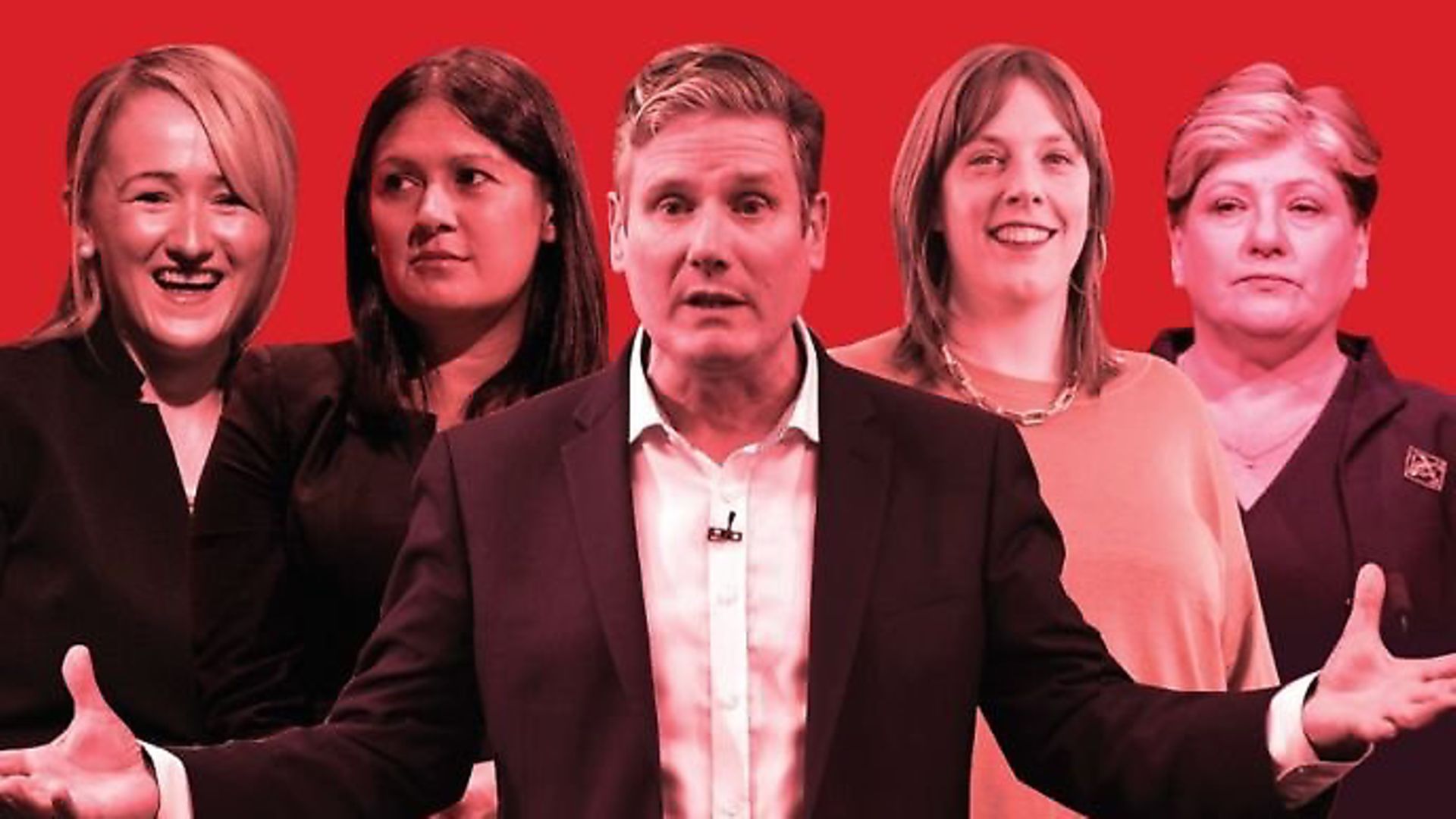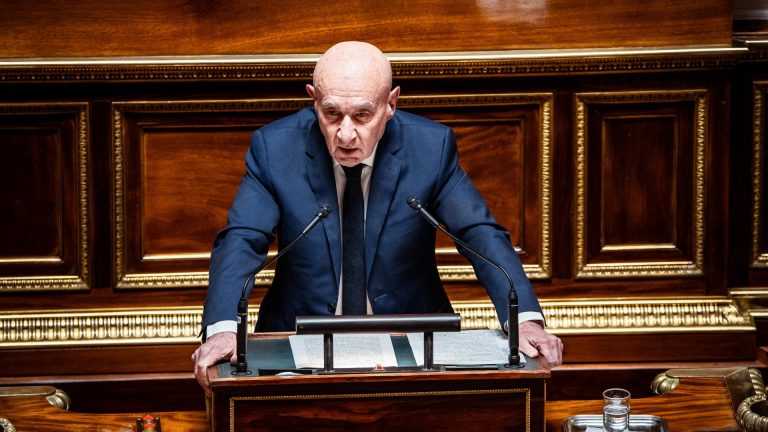
Will a new leader bring an end to the party’s anti-Semitism crisis? Former member ADAM LANGLEBEN fears the issue is too deeply-rooted for that to happen without tough action.
So is it all over yet? What has felt at times like an abusive relationship with the Labour Party over the last five years might finally be coming to an end. There might, just might, be a moment soon when mainstream centre left Jews like me feel more comfortable inside Labour spaces, and my community no longer views the party as an existential threat to our existence in this country.
Yes, we still await the outcome of the Equality and Human Rights Commission (EHRC) investigation into allegations of institutional anti-Semitism in Labour. And yes, Jeremy Corbyn still hasn’t gone. But all of the candidates standing to replace him represent an improvement, because it really couldn’t get much worse…
Yet despite my hopes for a better future, the Jew in me – influenced by generations of things going terribly wrong – tells me not to be so optimistic. One of the main reasons for my misgivings is that power in the Labour Party no longer lies with the leadership as it once did.
That means there is no silver bullet with which a new leader can resolve this issue. Whoever is elected in April will be constantly looking over their shoulder, not to Len McCluskey or any other union baron, nor to the Murdoch press, but to the membership.
Ordinarily this could be a good thing. If the membership were more reflective of the wider Labour-voting – or Labour-sympathetic – public this would be an ideal situation to be in. But it’s not. The membership, in its current complexion, has been radicalised to a frightening extent since 2015.
There has probably always been a small number of hard-left anti-Semites in the party, but they were previously silent members. In the last five years, however, their ranks have ballooned.
This does not mean that most Labour members are anti-Semitic, by any means. But there is a significant number. An anti-Semitic caucus now exists in the party.
As someone who joined in 2006 (and left last year), I saw this change occur with my own eyes.
No one should be under any illusions about what has happened to the party in the last five years. The process of radicalisation has involved extremists in the party preying on the genuine and honest frustrations that some people hold about politics and giving those frustrations a target. Throughout the country, in a number of Constituency Labour Parties (CLPs), those with politics that are opposed to the central aims of parliamentary and democratic socialism now hold office. Many of those same people are anti-Semites.
They hold sway in decision-making and have influence when choosing candidates, from council level to parliament. Their politics has been normalised in party discourse and, for these people, power in the party comes above power in the country.
The story of precisely how it happened, how it spread and was replicated across the country, is simple. And I must take my own share of the blame.
In 2015, when thousands upon thousands of good, honourable people joined the party, inspired by Jeremy Corbyn’s message of hope and a return to ‘old Labour’, the party establishment – including people like me – didn’t trust this new intake.
Many of us opposed Corbyn, for a variety of reasons, and we didn’t necessarily create spaces that welcomed these new members. This failure is something I deeply regret. Frustrated new joiners were desperate to get involved in their local parties, but couldn’t navigate the archaic processes and didn’t trust the old guard. While none of this justifies what has happened, it does provide the context for how the radicalisation happened.
The only people among this new intake who knew how to navigate Labour’s structures were those who had previously been in the party but had either left voluntarily or been thrown out, mostly at the time of the Militant Tendency. What tied the good, honourable, new members to the older, ‘Trottier’ anti-Semites was a shared belief in Corbyn and an opposition to the establishment within the party – an opposition to people like me and others, who are now defined as ‘moderates’.
People who I used to see protesting against Labour councils and advising people to vote for TUSC, Respect or Socialist Party candidates were suddenly in the fold and, before long, some of them were in control. In many places, these people became de facto local leaders. And among them were a number who held problematic views towards Jews.
Back in the party, often in positions of influence, they had a captive audience of new members with limited understanding of anti-Semitism who looked to them for leadership. The situation became further entrenched by the bunker mentality of the party leadership in the early years of the Corbyn era.
Over a short period of time, then, many among the party’s grassroots became radicalised by people with a certain way of thinking. And one aspect of that way of thinking is a dislike, distrust and prejudice towards Jews. It was often disguised, with ‘anti-capitalism’, ‘anti-Americanism’ or ‘anti-Zionism’ used as useful covers. This allowed the expression of prejudice without the guilt that any progressive should feel towards holding a racist outlook. When it came to this particularly minority, my community, too often there were supposedly justifiable reasons rooted in leftist thinking and ideology to hold this hate and espouse it. The poison comes from many different directions.
For some it comes from a simplistic view of the Israel-Palestinian Middle East conflict that is devoid of any nuance.
For others, it is from a bastardised interpretation of Marxism epitomised by Trotskyist group Socialist Fight and its promotion of a book titled The Jewish Question: A Marxist Interpretation. Some of the organisation’s leading members, including (now expelled) Gerry Downing, joined Labour in 2015. One Socialist Fight document asked: “How to explain the current situation then, when far from Jews being pariahs and rejected by capitalism, Jews are revered by capital and a form of Jewish nationalism – Zionism, exercises enormous power in the imperialist world? Why are Jews so overrepresented among the most strident spokespeople for capitalist reaction – the neo-conservatives and neo-liberal ideologues?”
For some, the poison comes not via Marxism but from classic, medieval Christian anti-Semitism. When I was a councillor I received an email from a Labour member telling me that I was trying to “take down JC just like you did before”. On social media, another claimed I “didn’t have human blood”. While for others, the prejudice seems to come straight from the pages of Der Stürmer, with a sinister obsession with the idea of a powerful Jew pulling the strings, whether it be George Soros or Sheldon Adelson, Lord Levy or Jon Lansman. It makes no difference what politics the individual preaches, the accusation is always the same: the person is corrupt, intent on deceiving the public and up to no good. This is appetising for people to believe because it’s easy.
For a membership that often felt under attack from the party establishment and a hostile media, Jews were often the easy scapegoat. Sometimes it meant directly targeting Jewish individuals or businesses, at other times it was the general use of the term ‘Zionist’, directed almost exclusively at Jews, as a term of abuse. For the more hardcore, Holocaust denial became acceptable in some Labour circles. Discussions about the ‘over-representation of Jews in the capitalist ruling class’ could be held without much objection. People who in some cases espoused genocidal anti-Semitism were allowed to be in meetings and spread their poison.
The only Jews who avoided such hostility were those who bought into the prejudice against their own or passed a ‘purity’ test in terms of their politics.
When Jews in the party tried to call out this behaviour, we were told it was just about Israel, even when the abuse had nothing to do with Israel. We were accused of crying wolf, creating a smear or ‘being Tories’. This in itself amplified the anti-Semitism and turned the issue into a political argument as opposed to a form of hate.
The leadership bunker mentality continued, meanwhile. Following the recent announcement from the Metropolitan Police that five cases of anti-Semitism in the party have been passed to prosecutors for a decision on whether to bring charges, it emerged Labour didn’t even bother telling the MPs targeted that threats had been made against them.
The Labour Party since 2015 is a case study in radicalisation of a movement. Members’ response to that year’s general election loss, and the party rule changes brought in as a result, created the fertile ground for it to occur, even if that was never the intent.
Corbyn was the carrier for this sickness, although it has now spread well beyond him, to a point where he could no longer control it, even if he had a will to do so.
After all, even his leadership’s supposed preferred candidate for succession, Rebecca Long-Bailey, has faced attacks from hard left anti-Semites. Since launching her campaign, she has been accused of being under the control of Momentum chairman Jon Lansman (who happens to be a Jew) and preparing to go “straight into bed with the JLM” (Jewish Labour Movement), if she is elected.
The JLM is one of Labour’s oldest affiliated organisations, dating back to 1920. Its longstanding link to the party is a sign of the role that organised, working class Jewish communities played in creating it in the first place. Today, however, many members accuse it of being a front for the Tories or the Israeli embassy.
Now that Corbyn is going, it is the responsibility of those left – and, especially, all those seeking to replace him – to try and cleanse the party of the sickness that has gained a foothold. As I say, there is no silver bullet, but there are five steps that could help deal with it:
All candidates for the leadership and deputy leadership must pledge to implement in full all recommendations made by the EHRC at the conclusion of its investigation. No ifs, not buts. This could be hard. If the EHRC recommend any changes to Labour rules then this will need to be approved by its party conference. Conference itself has become a very unwelcoming place for Jews in recent years and there is some doubt that conference delegates would accept these changes.
The party must also fulfil the simple requests laid out by the mainstream representative leadership of the British Jewish community, including an independent complaints system.
It should also implement the 19 technical suggestions made by the party’s only Jewish affiliate, the Jewish Labour Movement.
It should show leadership by prescribing the organisations which have sought to minimise the issue, notably Pete Willsman’s Campaign for Labour Party Democracy (which defended him for his comments that Jewish “Trump fanatics” were behind accusations of anti-Semitism in Labour ranks), the Labour Representation Committee, Labour Against the Witchhunt and Jewish Voice for Labour (the latter three all have a substantial crossover in leadership). My view is that no one with any connections with these bodies should be anywhere near positions of power.
It must acknowledge that it is the responsibility of the leadership to set the culture of the party at all levels. The next leader needs to use their privileged position to expose the racists in its ranks.
All of this requires leadership that has been lacking from Corbyn, who was either never exposed to the true depths of the problem, or didn’t believe it. The next leader will have a small window of opportunity and a period of goodwill from those who have raised concerns about this issue. But they will want to see swift and uncompromising action.
Tackling anti-Semitism and hard left conspiracy hobby horses could be a defining and transformative moment for the next leader. If they can demonstrate the strength of their values by standing up to the bigots in the party, then maybe the country will see something they are interested in voting for. Ah, there goes my optimism again…






